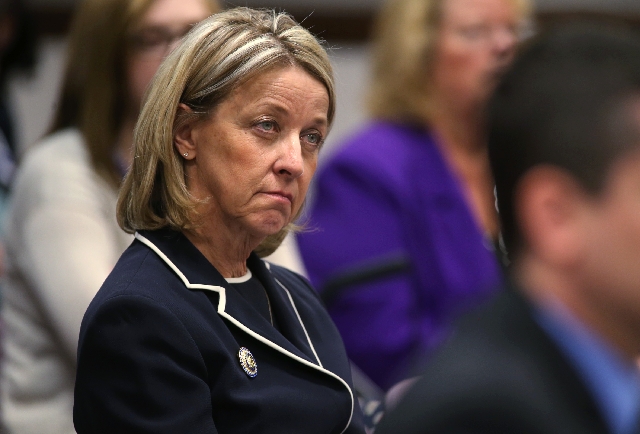DUI fee proposal for Nevada specialty courts draws opposition
CARSON CITY — Judges and some lawmakers raised concerns Tuesday about a bill that would impose a $500 assessment on DUI offenses to fund Nevada specialty courts.
Senate Bill 224, sponsored by Sen. Barbara Cegavske, R-Las Vegas, would impose the fee on people arrested for first or second misdemeanor offenses. The bill lets a judge substitute community service if a person is unable to pay.
“This is about helping and about making sure we have specialty courts,” Cegavske told members of the Assembly Judiciary Committee.
She said the $500 fee might amount to sticker shock but added that a stronger penalty on DUI offenses is a good policy.
The committee took no action on SB224, which unanimously passed the Senate.
Some justices of the peace, court administrators and committee members said the intent of the bill is laudable, but the mechanism might be flawed.
They said even people who are acquitted of misdemeanor DUI or have their charges reduced to traffic offense would be subject to the levy.
“I’m just wondering, is the net being cast too broadly there?” asked Assemblyman James Ohrenschall, D-Las Vegas.
Specialty courts provide oversight of defendants who get in trouble with the law because of underlying problems such as drug or alcohol abuse or mental health problems.
Alan Tiras, justice of the peace in Incline Village and president of the Nevada Judges of Limited Jurisdiction, said judges are big supporters of specialty courts but don’t believe the bill is an appropriate funding mechanism.
Carson City Justice of the Peace John Tatro said that the bill is well-intentioned, but “I do not think that DUIs are the way to fund specialty courts.”
Tatro said a majority of DUI offenders are represented by public defenders because of their financial status.
Last year in Carson City, 211 people were convicted of a first or second DUI offense, he said. Combined fines totaled $120,000, which gets distributed to the county. Another $41,000 was collected in administrative assessments, which must be collected before fines.
Tatro said if the bill had been in place last year, it would have added $105,000 to the administrative assessments.






















